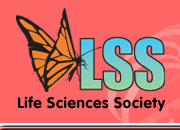Jasmin Fisher
Abstract
Executable Biology: Successes and Challenges
Computational modeling of biological systems is becoming increasingly common as scientists attempt to understand biological phenomena in
their full complexity. We distinguish between two types of biological models –mathematical and computational– which differ in their
representations of biological phenomena. We call the approach of constructing computational models of biological systems Executable Biology,
as it focuses on the design of executable computer algorithms that mimic biological phenomena. In this talk I will survey the main modeling
efforts in this direction, emphasize the applicability and benefits of executable models in biological research, and highlight some of the
main challenges that executable biology poses for Biology and Computer Science.
Biography
Dr. JASMIN FISHER has recently joined Microsoft Research Cambridge as a group leader at the Computational Biology Division. She holds a Ph.D. degree in Neuroimmunology from the Weizmann Institute of Science and was previously (2003-2004) a postdoctoral fellow in the department of Computer Science at the Weizmann Institute, where she worked with Prof. David Harel, and then (2004-2007) a postdoctoral researcher in the School of Computer Science at the EPFL working with Prof. Tom Henzinger. Her research focuses on the applications of formal methods to biological modelling, as well as on the development of novel formalisms and tools to better understand complex biological systems. She is mainly interested in processes of cell fate determination and signalling networks operating during normal development and cancer. Her e-mail address is jasmin.fisher@microsoft.com and her web page is http://research.microsoft.com/~jfisher/


